It’s not about the price. The 254p Fortress cash offer for Morrisons, announced and recommended by the Morrisons board, is only 10% more than the 235p bid tabled by US private equity giants Clayton Dubillier & Rice last month. And of course, CD&R may yet up its offer, as indeed may others, to take the hostilities further.
But the significance of the Morrisons board’s acceptance of a takeover by Fortress is in “the fulsome set of commitments in its intention statement”, as chief commercial officer Trevor Strain put it in a call to me this morning, “not just to investors but to all its stakeholders including colleagues, suppliers, farmers and pension holders”.
So who are Fortress? What does their offer entail? What commitments has Fortress made to its stewardship of Morrisons? And how can we be sure they won’t renege on them?
Serious owners
In contrast with CD&R, Fortress is a global asset management fund, with over £53bn in global assets managed on behalf of 1,800 institutional clients and private investors. And the investment of “in excess of £3bn” in equity capital in the all-cash offer “underpins them as serious owners”, says Potts.
The implicit contrast Potts draws with CD&R’s bid is stark. With lower debt levels to service, Fortress “does not anticipate engaging in any sale and leaseback”, it promises. It’s also “fully supportive” of the recent increase in the hourly rate of pay to £10 an hour for store colleagues – “the highest in the market,” adds Potts, proudly, in recognition of their valiant contribution in the pandemic, while there’s also no plans to change the pension rights and benefits.
In other words Fortress, rather than saddling Morrisons with debt, and engaging in the speedy financial flips that private equity is famed for, is positioning itself as a ’patient capital’ player, focused on protecting and nurturing rather than plundering and asset stripping.
As Fortress managing partner Joshua A Pack said: “We believe in making long-term investments focused on providing strong management teams with the necessary flexibility and support to execute their strategy in a sustainable and value enhancing manner.”
As evidence Fortress can point to its 19-year track record in supporting grocery retail businesses including the likes of Albertsons, Fresh & Easy and A&P in the US, as well as US-based petrol forecourt and convenience operator United Pacific in 2013, which has since increased from 129 stores to 650.
Its approach to UK-based Majestic Wine, acquired in late 2019, is also instructive, it argues: it’s not sold any of its freehold and long leasehold properties, and it reversed planned job cuts and store closures in the UK (albeit conditions are more favourable since the pandemic due to Majestic’s status as an ‘essential’ retailer).
In contrast with private equity players, there’s also no intention to bring in a separate operating team. “They aren’t there to operate the business,” says Potts. “They are backing the existing management, the strategy, the people”.
Indeed Fortress was glowing in its praise for Potts & co: “Whether it is grocery delivery, hiring new staff to help pick and pack customer orders or integrated vertical sourcing of products, Morrisons management has taken steps to be at the forefront of these trends rather than trailing them.”
True, there are questions over the long-term commitment of Potts, 64 and chairman Andy Higginson, 63. But the offer provides explicit support for the management team’s strategy in every way: in terms of its customers (“a central part in the fundamental character of the Morrisons business”); its suppliers (anticipating “no material changes to existing payment practices”); its vertically integrated supply chain; its programme of targeted new store openings (combined with online sales growth); its focus on wholesale channel development; its support for carbon reduction plans and other sustainability measures.
There’s also no plans to move the Bradford HQ.
Good stewards
Nor is this a case of Morrisons desperately seeking out a more friendly backer following the CD&R approach in mid June. On the contrary, talks with Fortress have been ongoing since 4 May, when an initial 220p per share bid was made. And Fortress has dedicated “significant resources to developing a through understanding of Morrisons’s positioning and long-term potential”.
That was backed up by Pack’s promise of playing a benevolent role, to be “good stewards of Morrisons, to best serve its stakeholder groups, and the wider British public, for the long term.”
As to the possibility of Fortress backtracking on its commitments, says Potts, “we’ve been talking to them for several weeks and have no reasons not to trust them”.
Indeed changes to the UK Takeover Code that were made in the wake of Kraft’s acquisition of Cadbury in 2011, adds Strain, mean that “the intentions document of an acquirer has a legally binding effect. If you look at those intentions there’s a very specific commitment to colleagues, pension holders, it’s a fulsome set of intentions that are binding. That regulatory framework is clear and understood.”
So what happens next? In the next 28 days a scheme document will outline further details of the offer, which would then need to be approved by shareholders “over the summer”, Potts advises.
Meanwhile, it’s not inconceivable that both CD&R and other private equity players may up the stakes and table higher bids. But Potts stresses that it’s not just a case of the highest price taking the spoils.
“The underpin on the pension, anticipating no material change in leaseback obligations, the fact our terms and conditions aren’t changing, bearing in mind the £10/hour commitment, these are all important considerations. Boards have a responsibility to both the price achieved in any acquisition and the implications for a wider set of stakeholders than just investors. We have given extensive consideration to this bid prior to recommending it.
“Any rival bid would have to address those competitive positions. All of us in the board have a very important responsibility to assess future owners of Morrisons. That combination of the premium and the intention and scale of the equity versus debt will have to be compared with other investment alternatives by us and by the companies themselves as they go through their own process.”
That backing puts Fortress firmly in the driving seat. And means that any rival bid from CD&R or other private equity rivals will need to up the stakes on every level.
Over to you Sir Terry.







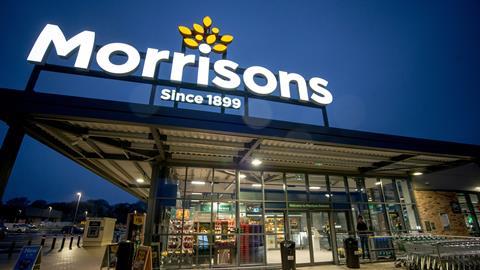
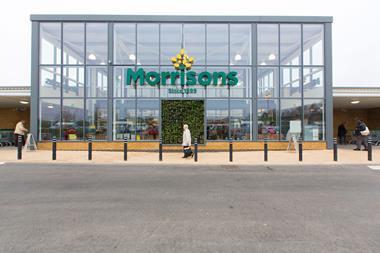
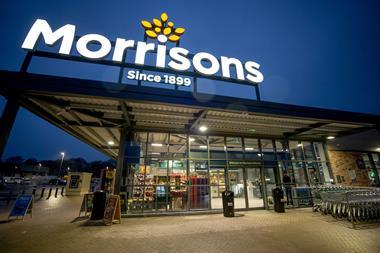
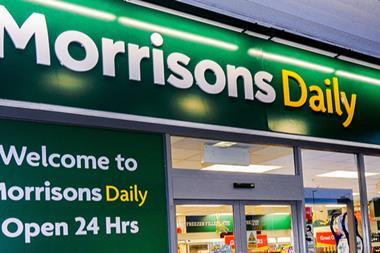
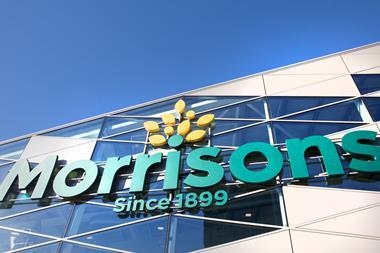
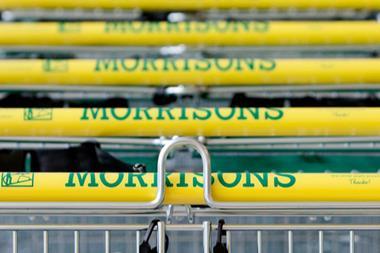
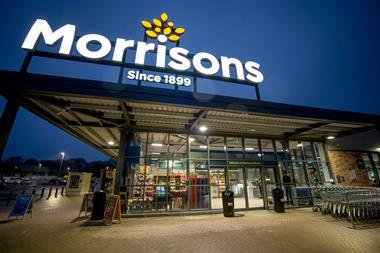






No comments yet